Japanese Youth Explored Historical Truths in Nanjing
On the morning of July 14, the Japanese “Peace Journey to China Delegation” made its 29th visit to the Memorial Hall. This marked their 29th journey to China, where they explore wartime memorial sites related to the Chinese People’s War of Resistance Against Japanese Aggression in search of historical truths.
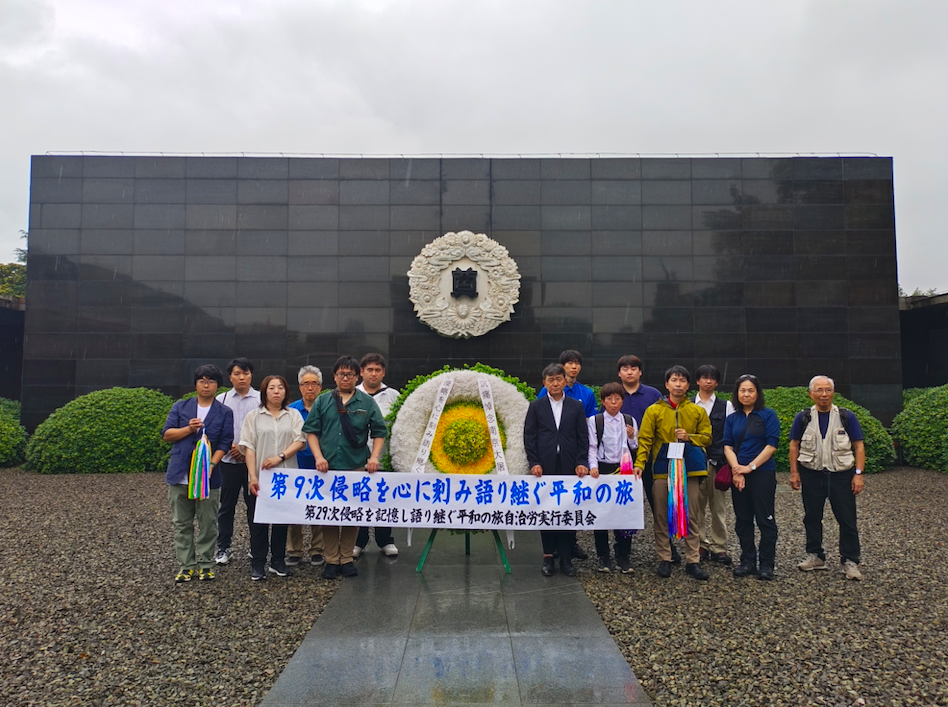
The delegation consisted of 14 members, most of whom were under the age of 40. Unlike typical visitors, nearly every member carried a notebook, meticulously documenting their observations as they moved through the Memorial Hall. At the back of the group was Mr. Ishikawa Katsumi, a 77-year-old Japanese peace advocate.With a backpack on his shoulders, he intermittently lifted his camera to capture images of the exhibits.
Mr. Ishikawa, a pioneer of the delegation, initiatedthese visits in 1991. He has observed that many young people in Japan cherish peace and oppose war. They acknowledge Japan’s history of aggression towards China and aspire for a deeper understanding of this history through their visits. Each tour includes several historical sites across China. In addition to the Memorial Hall, their itinerarycovers the Museum of the War of Chinese People’s Resistance Against Japanese Aggression in Beijing, the Exhibition Hall of Evidences of Crime Committed by Unit 731 of the Japanese Imperial Army in Harbin, northeast China’s Heilongjiang Province, and the 9.18 Historical Museum in Shenyang, northeast China’s Liaoning Province. Since the inception of the delegation, Mr. Ishikawa has accompanied approximately 1,300 young Japanese individuals to China. After each visit, group members typically organize three domestic events, each lasting three days, to share their experiences, gather information, and compile literature. Mr. Ishikawa expressed his hope that these journeys could help Japanese youth understand the historical truths, which is crucial for fostering friendly exchanges between China and Japan and promoting a peaceful environment.
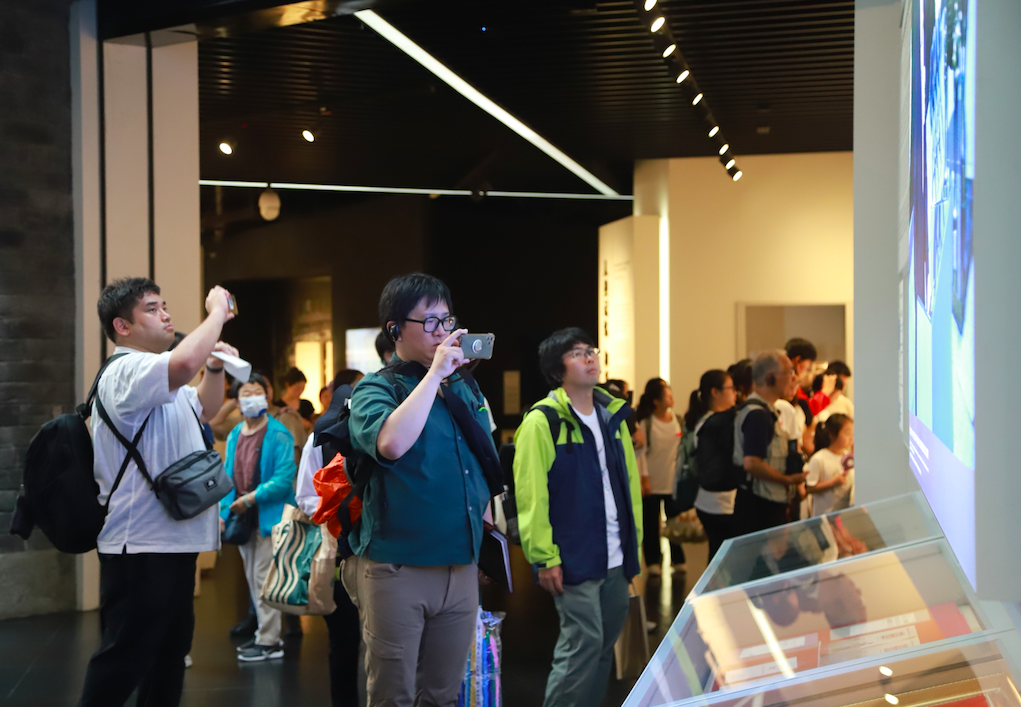
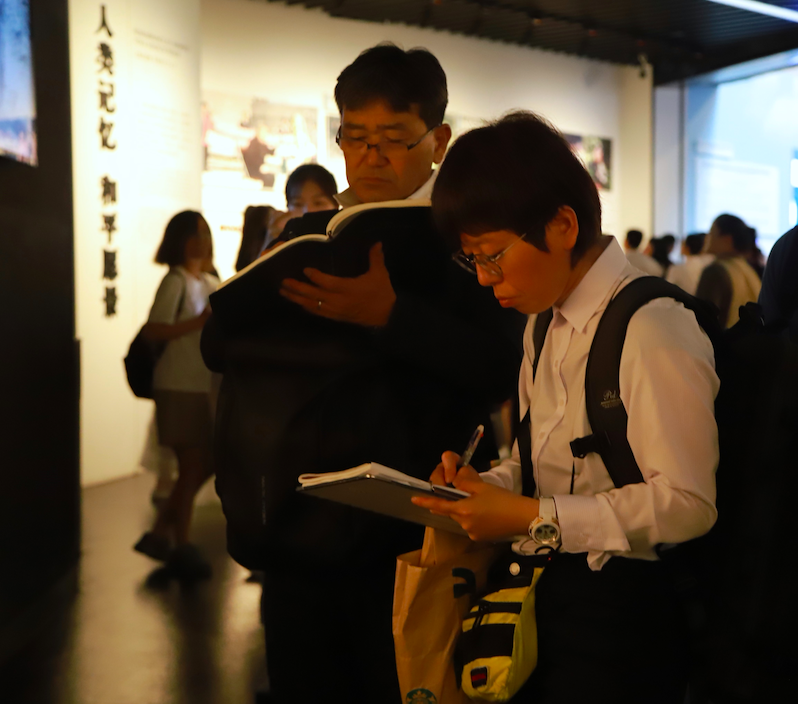
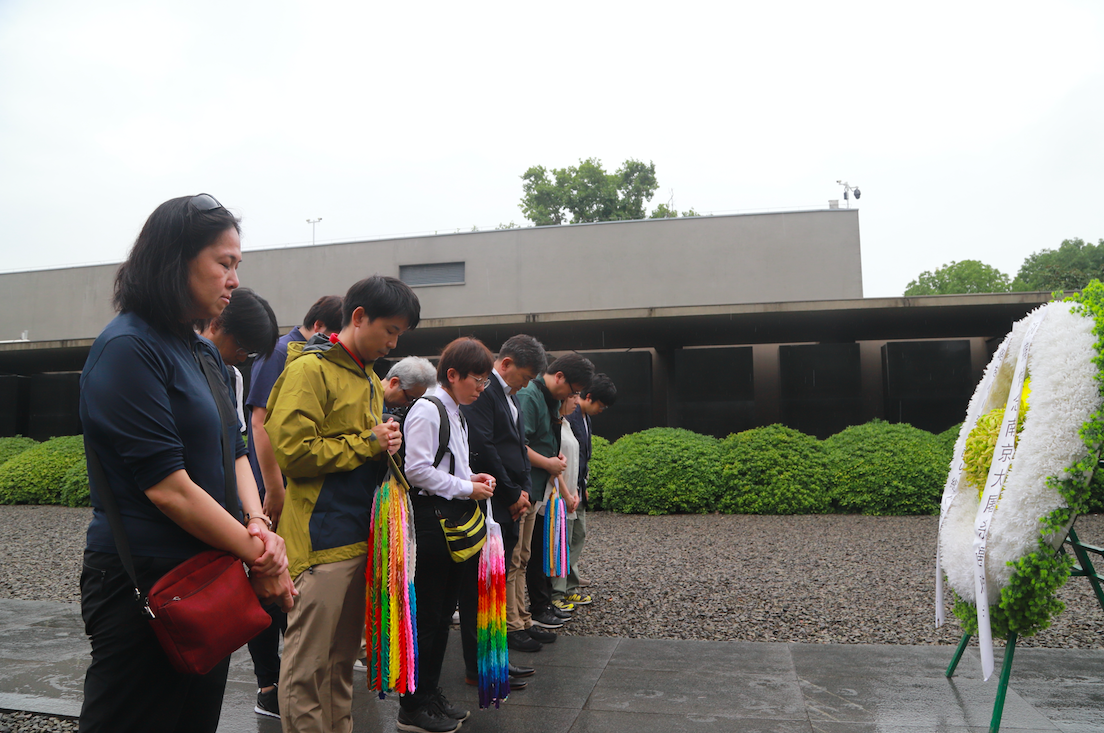
Members of the Japanese “Peace Journey to China Delegation” laid a wreath to honor the victims of the Nanjing Massacre
Upon conclusion of their visit, the delegation engaged in a dialogue with Memorial Hall staff members and Chang Xiaomei, the daughter of Nanjing Massacre survivor Chang Zhiqiang. As a token of remembrance,Chang Xiaomei presented the delegation with a copy of A Survivor of the Nanjing Massacre Chang Zhiqiang’s Life,a book she authored.She then recounted the harrowing ordeal her father endured as a child during the massacre. At the age of nine, Chang Zhiqiang witnessed the brutal murder of his parents and four younger brothers at the hands of Japanese soldiers. In his mother’s final moments, she heroically struggled to give his youngest brother one last mouthful of milk. Chang Xiaomei also spoke of the indirect harm the war inflicted on her, noting that she rarely saw smiles on her father’s face and experienced a void where the love of a father should have been, as he lived with the enduring torment of his past. “Seeing the young Japanese individuals at the Memorial Hall, I am heartened on my father’s behalf. He always wished for the Japanese public to understand the history behind the massacre. Only by revealing historical truths can we create a bright future,” she said.
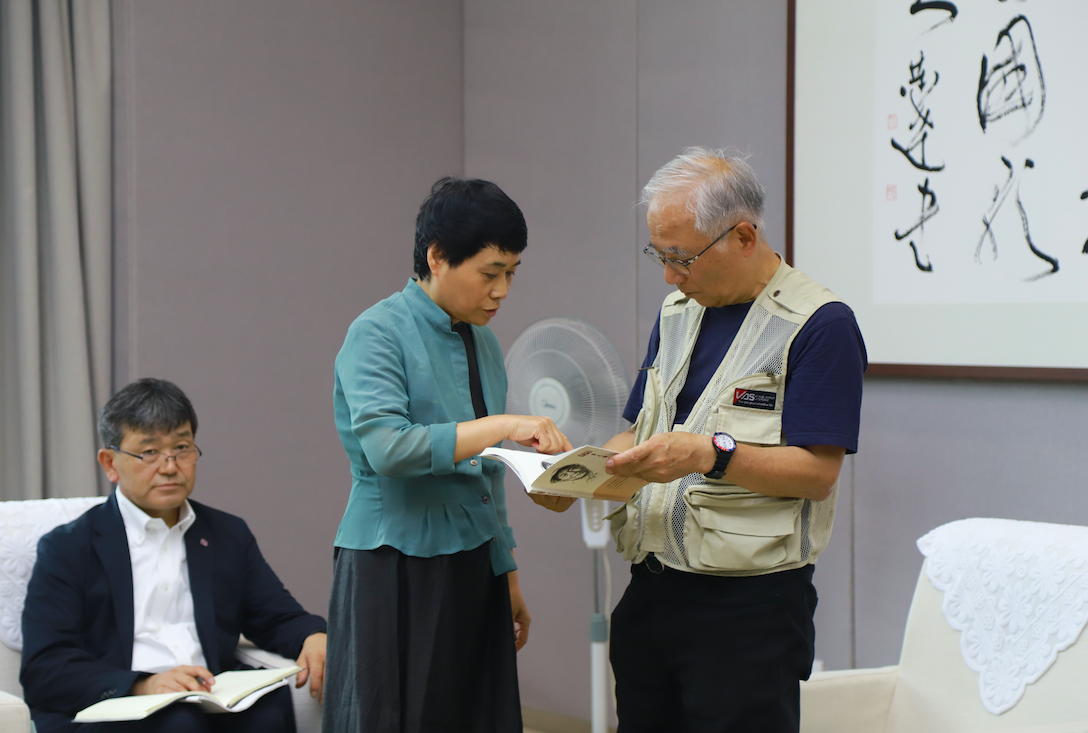
Chang Xiaomei presented the delegation with a copy of A Survivor of the Nanjing Massacre Chang Zhiqiang’s Life, a book she authored, as a token of remembrance
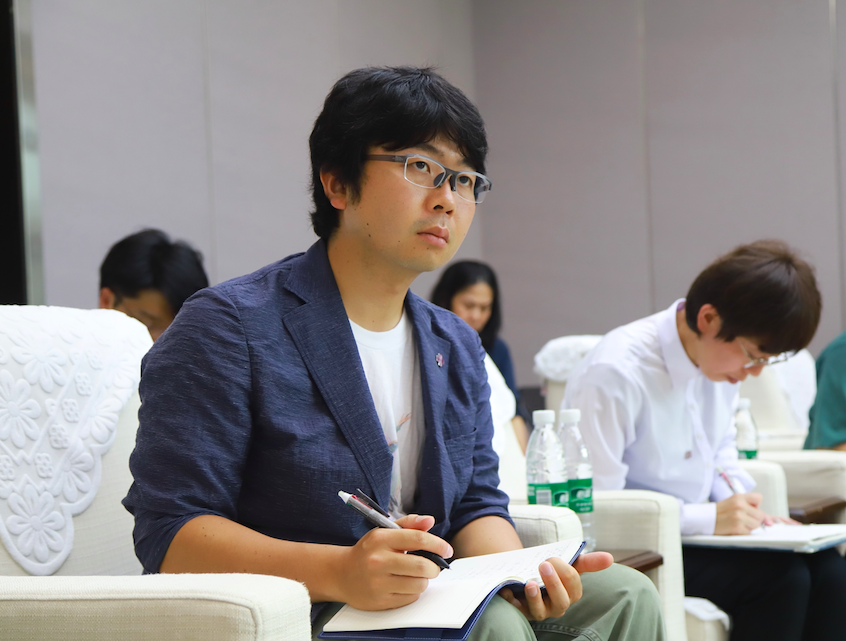
Fujii Hidesato, a 31-year-old civil servant, remarked that the exchange evoked profound emotions within him. “Seeing is believing. In an era flooded with mixed information, I am compelled to verify historical truths through my own experience. This was the impetus for my participation in the delegation. Hearing Ms. Chang’s experience, I deeply feel the devastation that war has inflicted upon its victims, and the most terrible thing is that this damage can even be carried on to the next generation,” he said. He added that the visit reinforced his belief in the necessity of learning about history and the importance of valuing peace.
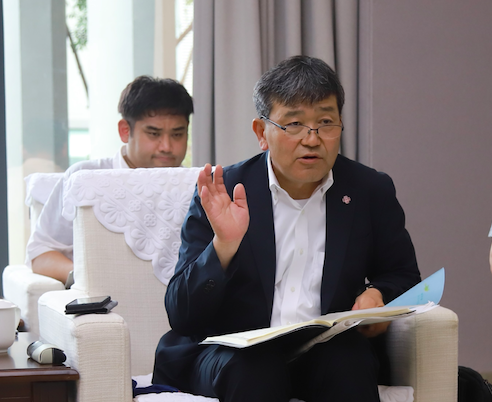
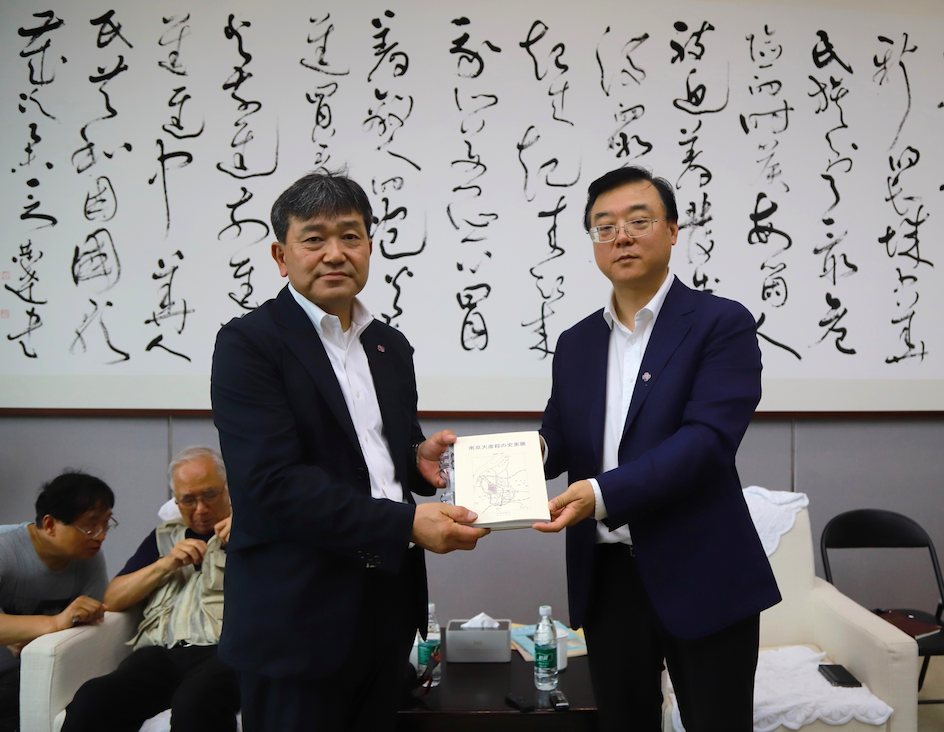
Zhou Feng (R), director of the Memorial Hall, presented a book to the delegation as a donation
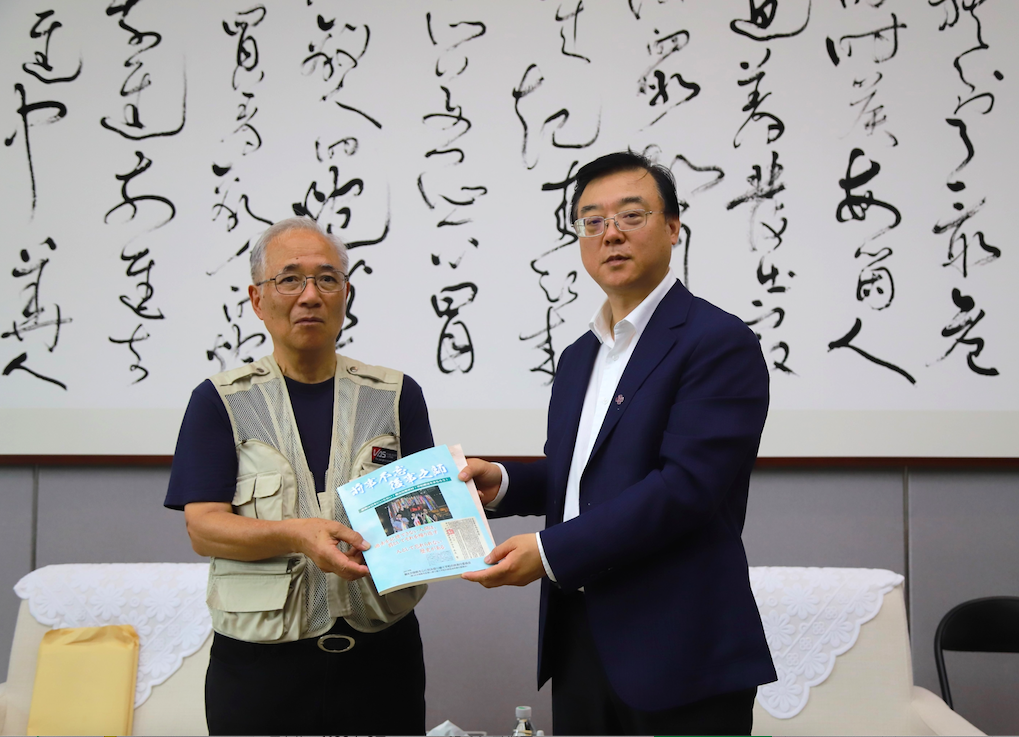
Ishikawa Katsumi (L) presented the Memorial Hall with a book compiled by the delegation as a gift
Other historical sites on the delegation’s itinerary in Nanjing include the Nanjing Museum of the Site of Liji Lane Sex Slaves Station, a branch of the the Memorial Hall, and the Burial Site for the victims of the Nanjing Massacre. After departing from Nanjing, the group is scheduled to proceed to Heilongjiang and Liaoning provinces to pay their respects at anti-Japanese war memorials.

